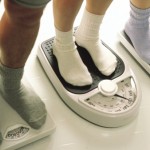Do this weekly to improve your brain function
 You may have heard that if you want to improve brain function you need to exercise. Brain specific exercises – like crosswords, sudoku and puzzles – can definitely help to boost brain function, but physical exercise has been shown to boost brain health even more.
You may have heard that if you want to improve brain function you need to exercise. Brain specific exercises – like crosswords, sudoku and puzzles – can definitely help to boost brain function, but physical exercise has been shown to boost brain health even more.
There is abundant research to support running, walking and other aerobic activities as methods for boosting the brain, but weightlifting has previously been overlooked. In recent findings, researchers opted to measure the effects of weightlifting and how it can work to improve the brain.
Weightlifting twice a week aids the brain
The findings of the study uncovered that light resistance-training – that’s right, no strenuous lifting required – can slow down the effects of age-related shrinking in the brain.
Throughout the average lifespan, our brains add and shred neurons and connections. Additionally, they remodel and repair themselves as a response to our lifestyle changes and how we exercise.
By middle-age it has been found that holes and lesions within the brain’s white matter – this is the part of the brain that connects and passes messages between different areas of the brain – are healing slower or not at all.
 Before any warning signs or changes occur in memory, these holes and lesions have formed and remain for quite some time. As the years go by, these holes and lesions become wider and continue to grow, which begins to shrink our white matter and affect the way we think. Scans have shown that older adults with many lesions and holes in white matter are more likely to suffer from cognitive impairment.
Before any warning signs or changes occur in memory, these holes and lesions have formed and remain for quite some time. As the years go by, these holes and lesions become wider and continue to grow, which begins to shrink our white matter and affect the way we think. Scans have shown that older adults with many lesions and holes in white matter are more likely to suffer from cognitive impairment.
For the latest study, researchers at the University of British Columbia investigated which types of exercises would most benefit white matter in the brain. Weight training was the primary focus as it offers many benefits to building muscles, which also shrink and grow larger like the brain does.
Women between the ages of 65 and 75 were used for the study. They underwent a brain scan, and the researchers focused on 54 women who showed brain lesions on white matter. Gait speed and mobility were tested and the women were then separated into three groups.
One group conducted a supervised, weekly program of light upper and lower body weight training. The second group did the same training twice a week and the third group did stretching and balancing twice a week. Each group completed their routines for a year.
The women in the group that completed weight training twice a week saw the most significant improvements, with less shrinkage and lesions of white matter. The women who completed stretching and balancing had the worse progression of white matter decline, and thus experienced a slowing of their gaits.
The women who weightlifted twice a week were also able to walk quicker and more smoothly when compared to the other groups.
The findings suggest that light weight training twice a week is substantial enough to slow down brain shrinkage and lesions in the white matter of the brain, thus contributing to improved overall brain function.
The take home message here is that by pairing aerobic and weight-training exercises you can maintain a healthy brain for many years to come.
Diabetes may lead to memory loss, dementia in elderly
Inflammation playing a role in type-2 diabetes is nothing new, but the reduced blood flow that results has also been linked to memory loss and dementia in the elderly. Over the last decade more research has looked at diabetes and the brain. Just this summer, a study published in the journal Neurology outlined that reduced blood flow and blood vessel capability speeds up cognitive impairment. Continue reading…
-
XTREME FAT LOSS DIET - DISCOVER HOW TO BREAK THE CYCLE OF FAT LOSS
You must have heard million times that a diet should abide of food
-
Benefits of Weight Loss Surgery
Obesity is the most severe stage of weight gain that can pose a lot of
-
Our top 30 weight loss tips
Like any successful project you need to be organized and prepare
-
Fast Weight Loss Tips For Easy Weight Management
It is also important to note that your weight should be lost graduall
-
The BBC’s 10 Scientific Ways To Lose Weight
Michael Mosley on the BBCThe BBC decided to research weight loss
-
9 Steps to Eating on Purpose
How many times do you just wolf-down your meal in a mad rush to fin
- DON'T MISS
- Virtually all around Green Tea Extract
- Goal Setting - Ten Lessons I Learned While Climbing to the Top
- Weight Loss and Water. What you should know.
- Easy Weight Loss - Two Tips For Great Weight Loss Success
- Why Upping Your Protein Intake Can Help You Lose Weight
- Looking To Lose Weight? Try Eating In Front Of The Mirror
- Make Weight Loss Easier With These Tips
- Weight Loss Tips Choosing The Best For You
- Natural Fat Loss Formula Can Make Your Life Easier
- Keeping a Diet Diary




